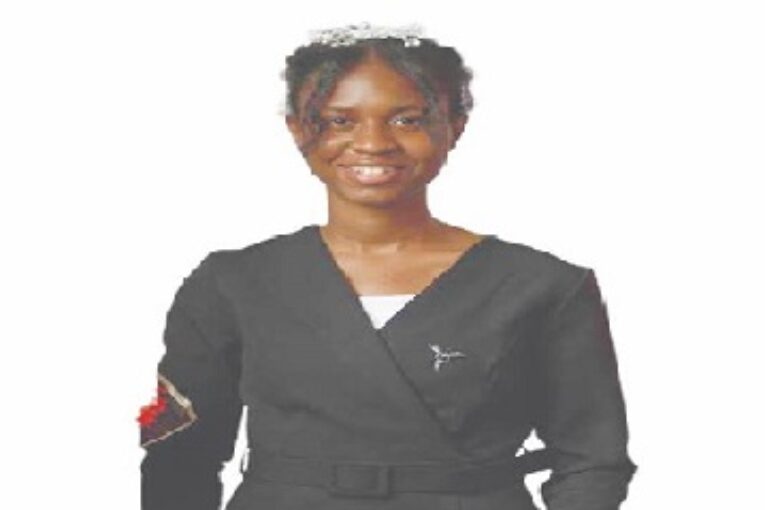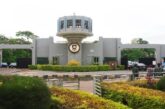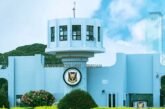
At just 20, Blessing Adekola has made history as the youngest African to graduate with a degree in medical from Cyprus International University. In this inspiring interview with TEMITOPE ADETUNJI, the Oyo-born scholar opens up about leaving home at 14, battling self-doubt, and how faith, family, and fierce determination carried her through
Can you tell us a bit about your roots and your early background?
I’m from Ogbomosho in Oyo State, in the southwestern part of Nigeria. I was born on February 7, 2005, into the family of Dr Adetomiwa Adekola and Mrs Titilayo Adekola. We are a close-knit family of six, and my upbringing was shaped by strong values and support from my parents.
Were you always a brilliant student, or did something change along the way that lit a fire in you academically?
I was actually a brilliant student growing up. At the age of four, I was admitted into Glisten International Academy, Jahi, Abuja, where I began my primary education. I advanced to secondary school at the same institution at the age of nine. Throughout my time in high school, I maintained excellent academic performance and consistently ranked among the top students in my class.
Medicine wasn’t my initial dream course. I originally wanted to become a teacher. But along the way, due to my love for children and my interest in Biology, I eventually decided to become a pediatrician.
How did your parents or guardians shape your outlook on education and ambition?
My parents have always been supportive of my decision to study Medicine. I remember growing up, my dad would often call and ask me what I wanted to become. Initially, I said I wanted to be a teacher, but he would gently advise me to consider a more lucrative career path. Still, he always reminded me that I had time to decide.
Eventually, during secondary school, I fell in love with Biology. That, combined with my love for children, led me to choose Medicine and ultimately decide to specialise in pediatrics.
Despite the economic challenges, rising exchange rates, and the added responsibility of sponsoring my siblings’ education, my parents did everything they could to make this journey possible for me, and for that, I am deeply grateful.
One of my goals in studying Medicine was to make them proud because I knew how much they had invested in seeing me succeed. Their prayers and encouragement carried me through the journey.
What inspired your decision to study medicine in Cyprus, and how did you gain admission?
I chose Cyprus International University not only because it felt like home, my siblings were already studying there, but also because of the structure of the programme: three years in Cyprus, followed by three years in Turkey.
I knew studying in Turkey would offer valuable academic experience, which made the programme even more attractive. I gained admission by presenting my WAEC result.
What year did you gain admission and how old were you?
I gained admission in 2019 and graduated June 2025. I was 14.
What was the transition like from Nigeria to Cyprus in terms of culture shock, academics, and identity?
Moving to Cyprus was a big step, but having my siblings there made the transition easier. Still, I faced culture shock, missing home, the food, and the weather. Academically, it was tough at first. The workload was intense, and adjusting from high school to medical school took time. Learning Turkish was another major challenge, especially since it was required for clinical interactions in later years.
I also had to grow into independence early. I was just 14. In that uncertainty, I found God in my second year, and that became a turning point. My faith gave me clarity, strength, and a sense of identity that kept me going through every challenge.
Did you ever doubt yourself or feel out of place, especially being so young and far from home?
Definitely, I did, many times. I often questioned whether I was too young for this, whether I could actually do it, or if I had made a mistake by choosing Medicine. Whenever someone asked how old I was, I felt shy to answer. Their surprise made me doubt myself even more.
It was hard carrying that kind of weight at such a young age.
But my faith in God and my strong support system, my family, my pastor and his wife, my church, and my friends, helped silence those doubts. Their encouragement reminded me that age doesn’t define capability. Over time, I gained confidence and began to truly believe I belonged.
By in my third year, things started to shift. I got better academically, figured out how I studied best, and started putting in extra effort.
However, moving to Turkey in my fourth year brought a fresh wave of self-doubt.
Though Cyprus and Turkey aren’t so different culturally, the transition was harder because I no longer had that physical support system. It felt lonely at times. But I reminded myself that even if they weren’t physically present, my loved ones were rooting for me, and with God on my side, I knew I was going to make it.
What were some of the biggest challenges you faced as a Nigerian medical student in a foreign land?
One of the biggest challenges was the language barrier, especially after I moved to Turkey for clinicals. Again, learning Turkish while managing an intense medical curriculum was incredibly tough. The programme itself was time-consuming and demanding.
Because Biology had always been my strong suit, I assumed I would be fine. But the reality was drastically different from high school. I struggled to comprehend the material at first, and the intense timetable was overwhelming.
Everything demanded more effort; understanding lectures, preparing for exams, and learning Turkish for patient interactions. Cultural differences and homesickness added to the pressure. But with time, prayer, and support, I was able to adjust and eventually overcome.
Medical school is known for being intense. How did you survive and even excel through it all?
Indeed, it was tough; the schedule, the volume of notes, the overwhelming material. My first and second years were a real struggle. It often felt like I was just barely making it through. But everything changed when I found God. That encounter gave me a deep sense of identity, focus, and clarity.
In my third year, my pastor’s wife asked how school was going and about my grades. When I told her, she sat me down and encouraged me to create a schedule and be more intentional about my studies.
I took her advice seriously, and in that semester, I recorded my best results since starting medical school. From that year onward, everything changed. It was discipline, focus, consistent studying, and refusing to give up that helped me survive and eventually excel.
What was your academic routine like? How did you study, manage stress, and stay ahead?
After my third year, I followed a strict study timetable. I made it a point to review class materials daily. I discovered that visual aids helped me understand better, such as charts, diagrams, and platforms like Kenhub and Osmosis, which simplified complex concepts.
To manage stress, I turned to prayer, uplifting messages, music, rest, and check-ins with my loved ones. It wasn’t a perfect routine, but it was intentional, and it helped me stay focused and balanced.
Were there moments where you wanted to give up? How did you handle burnout or failure?
Absolutely! There were times I felt so drained, all I could do was cry. Seeing results that didn’t reflect my effort made me question everything: ‘Why am I even here?’ In those moments, I cried, prayed, listened to music, or spoke to my sister. Sometimes, my parents would call with the perfect words of encouragement.
I remember going to church on days I felt especially low, and the message would speak directly to what I was going through. It felt like God knew exactly what I needed. I can’t say I faced burnout a lot because I made a conscious effort to enjoy the process. Taking breaks, eating ice cream, or doing something light. Fun also helped me stay refreshed.
Did you ever experience discrimination, isolation, or pressure that made you feel like quitting?
There were subtle instances of feeling misunderstood or overlooked, especially due to language and cultural differences. At times, I felt isolated. But rather than let it defeat me, I let it fuel my drive. I stayed focused on my goals and kept showing up.
What was your reaction when you heard you were the best graduating student and the youngest too?
Although I wasn’t the overall best graduating student, I was one of the top graduates, the best from Africa, and the youngest ever to graduate from the medical programme at Cyprus International University.
Graduating at 20 was something I had worked toward.
What made it more significant was realising that I was one of the very few who completed the programme from the original cohort. I was overwhelmed with gratitude to God and everyone who supported me.
Did you see it coming, or was it a total shock? What made you stand out among your peers?
Honestly, I didn’t see it coming. My aim was never to compete but to prove to myself that I could do it. What likely set me apart was achieving this at 20. But beyond that, I believe consistency, tenacity, and balancing excellence with humility and faith made a difference.
Was there a particular lecturer or moment in school that made you believe you were on the right path?
Yes. In my third year, Dr Cengiz, who was leaving our department, sent me a message wishing me the best and said he had no doubt I would become a great doctor. That stayed with me.
Other lecturers like Associate Prof. Ayse Seyer and Prof. Guldal Mehmetcik were also supportive and encouraging. Their words kept us (students) motivated.
What was your proudest moment in those years of study?
My proudest moment was walking across that graduation stage. The tears, prayers, sleepless nights, and sacrifices all culminated in that moment. I’ll also never forget stitching up a patient for the first time or successfully intubating (insert tube into a person’s body) someone. Those little wins made me proud that I stayed the course.
Looking back, what was the hardest sacrifice you had to make to get here?
Leaving Cyprus for Turkey was hard. I was already comfortable there, and it felt like home. Starting over in Turkey was tough. Another major sacrifice was missing out on moments with my family and friends. That emotional distance was difficult, but I knew what I was working toward.
Did your family ever struggle financially to keep you in school?
Not exactly, but the economic challenges, rising exchange rates, and my parents also sponsoring my siblings made things tough. They made countless sacrifices to see me through.
A lot of Nigerian youths are trying to leave Nigeria. What do you think this achievement says about Nigerian potential abroad?
Nigerians have the potential to achieve greatness anywhere. We are driven, resilient, and innovative. My story is just one example of what’s possible when we’re given space and tools to thrive.
What does this success mean to you personally, and to the people back home who are watching?
To me, it’s proof that with God, hard work, and faith, anything is possible. To others, especially young Nigerians, I hope my story shows that their dreams are valid. Age is not a barrier. I started unsure and overwhelmed, but by the grace of God, I’m here today.
Do you plan to return to Nigeria to practice, or are you considering staying back in Cyprus or elsewhere?
I’m keeping my options open.
How old are you?
I am 20 years old.
What would you say to any Nigerian student who is struggling but dreams of something big?
Don’t give up. Your struggles don’t disqualify you from success. Explore opportunities. Stay disciplined. Surround yourself with people who believe in your dream. Always remember that delay is not denial. Keep showing up—you’ll get there.
Are you already working on any projects or future plans related to healthcare in Nigeria or Africa?
The future holds a lot, but not yet.
What would you do differently if you have the chance to start this journey again?
I would have asked for help earlier.
What role did faith, discipline, or friendships play in your success story?
Faith was my anchor. Discipline kept me consistent. Friendships were my emotional support. Each of the three played a vital role. I couldn’t have made it without them.
If the Nigerian president offered you a key role in fixing the health sector, would you say yes?
Absolutely! I believe young and passionate Nigerians have a lot to offer. I would gladly take up the responsibility to help restructure and strengthen our healthcare system.
Credit: Punchng




